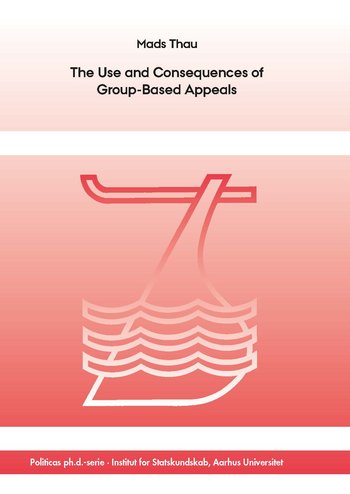Mads Thau
The Use and Consequences of Group-Based Appeals

How do political parties appeal for votes and what are the electoral consequences of such appeals? This dissertation advances a novel perspective on party electoral strategy. Building on the idea that voters are group-oriented, it argues that since voters evaluate parties based on which groups they are thought to represent, vote-seeking parties use group-based appeals to change or sustain their group images so that the public sees what the parties want. This contrasts with the dominant perspective in the literature, which assumes that voters are policy-motivated, and argues that parties use policy-based appeals to adjust their policy images in strategic ways. I substantiate the argument in a number of ways. Based on unique data from a content analysis of British election manifestos from 1964 to 2015, I show that group-based appeals are increasingly used, that they are used in accordance with electoral incentives, and that they are not proxies for other party strategic variables like policy positions and issue emphasis. I also show that group-based appeals can help parties increase vote shares, and that they can shape the social basis of electoral choice. In both cases, group-based appeals matter independently of the policy-based appeals that previous work has focused on. We seem to be dealing with a distinct way that parties appeal to voters. One that influences to party electoral success and individual vote choice on its own. This dissertation will be of interest to scholars of party competition and voting behavior and to others interested in democratic politics.
![]() Ophavsretten tilhører Politica. Materialet må ikke bruges eller distribueres i kommercielt øjemed.
Ophavsretten tilhører Politica. Materialet må ikke bruges eller distribueres i kommercielt øjemed.